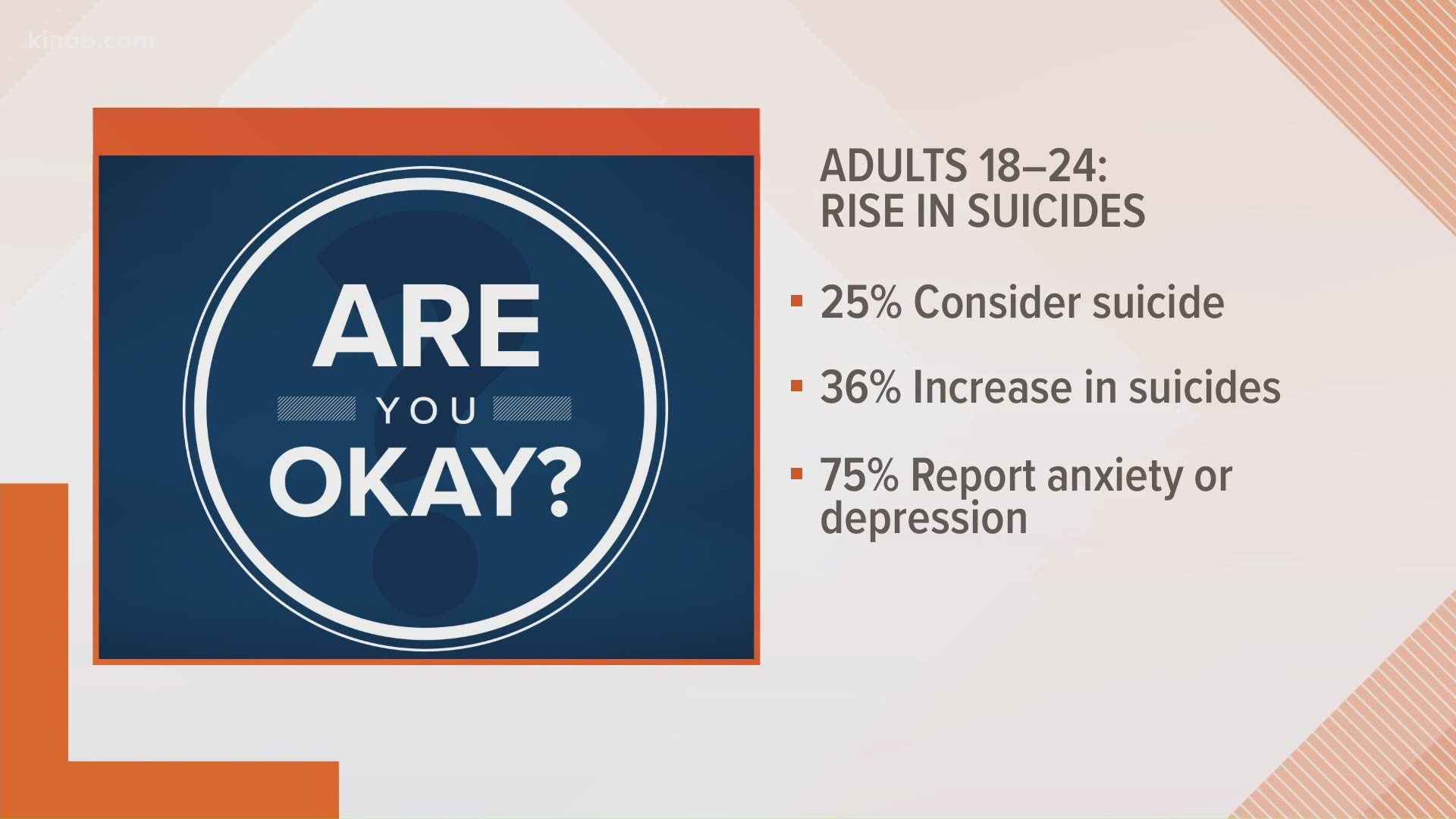Suicide and overdose deaths are on the rise. The problem is especially prevalent in young adults. A recent C.D.C. report found that 25% of adults ages 18 – 24 have regular suicidal thoughts.
Dr. Stephen Anderson is the past chair of the American College of Emergency Physicians and a practicing E.R. physician at Auburn Medical Center. He is part of a group of community leaders and medical professionals that developed nationally-recognized suicide prevention programs called R.E.A.D.Y and R.E.A.D.Y Teen. R.E.A.D.Y stands for Real Emergency Aid Depends on You.
As pandemic persists more are attempting suicide
In Auburn, where Dr. Anderson works, about a quarter of emergency room patients have attempted suicide or overdosed on drugs. This connects to data from the C.D.C.
Adults Ages 18 – 24: Rise in suicides
- 25% Consider suicide at least once per month
- 36% Increase in suicides since the year 2000
- 75% Report anxiety, depression of both since the start of the pandemic
Increase in overdoses
- 13% of young adults self-report an increase in recreational drug use
- 21% increase in overdose deaths
- 40% increase in substance use according to measurable liquor and marijuana sales.
Warning signs of suicide, self-harm or overdose
Knowing the warning signs of suicide, self-harm or overdose is the key to prevention. Dr. Anderson likens suicide prevention to CPR. We’ve learned how to recognize when another person is in physical distress. Many of us took a CPR class to be able to save a life.
Mental health distress is similar. Learning how to recognize the signs of a mental health crisis is a key part of preventing suicides.
In about an hour, we can learn to recognize the signs of suicidal behavior. And, in just a minute we can identify the most revealing behaviors.
Signs of suicidal behavior
- Withdrawal from family, friends, and loved ones
- Less engagement with activities that bring joy. This could be sports, games, conversations, and weekend outings
- Often the person will tell you about their feelings. Some even discuss plans for self-harm
Dr. Anderson says it is important to tell a health professional if a loved one is talking about suicide or overdosing. Intervening is not a compromise of trust. Rather, Dr. Anderson says it is an expression of love.
Communication that signals serious anxiety or depression is also concerning. It is important to urge a loved one to get help from a mental health professional. And, in some cases, you might need to intervene to keep your loved one safe.
R.E.A.D.Y and Teen R.E.A.D.Y are designed to help prevent suicides
R.E.A.D.Y (Real Emergency Aid Depends on You) is designed to help people recognize suicidal behaviors as easily as they can see physical distress. And, empower people to help someone who is considering suicide or having a mental health crisis.
Dr. Anderson offers three keys to suicidal behavior intervention.
3 ways to intervene in suicide
- Impart importance of keeping safe. Use the word safe. Say things like, I want to be safe and I want to keep you safe. I want everyone to be safe.
- Keep lines of communication open. Stay in touch with the person who may contemplate suicide. Texts, emails and social media messages work. So do phone calls, letters, gift drops, and when possible in person connection.
- Get help. Mental health professionals and doctors want to help people in distress and have special training to support them.
If an attempt is near at hand, unfolding or happening, get help immediately. Call 911 to get an immediate response. Additionally, you can reach out for mental health crisis care by texting HOME to 741741 or calling the National Suicide Prevention Hotline at 1-800-273-TALK. Both are available 24/7.

